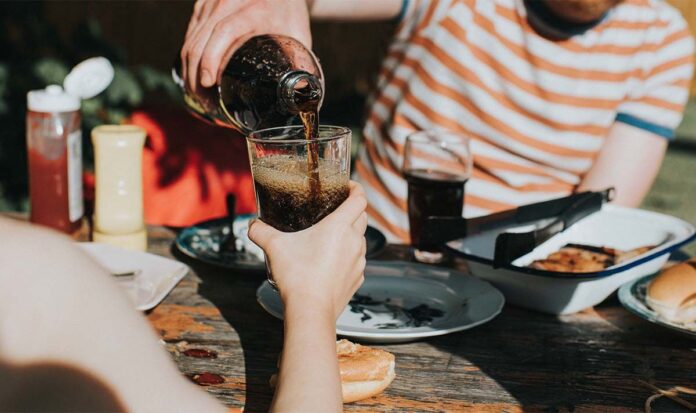While blood clots can form as a response to an injury, not all blood clots crop up with good intentions. Worryingly, what you drink and eat could set off processes leading to the gel-like clumps.Blood clotting is crucial to prevent excessive bleeding but this invitation doesn’t extend to all clots.If the gel-like clumps block your veins or arteries, blood clots can spur on life-threatening problems, ranging from heart attacks to strokes.What’s worse, your go-to beverage could be laying the groundwork for the processes that can lead to these dangerous clots.Flavoursome yet refreshing, it’s no surprise that fizzy drinks are a popular go-to beverage for many.READ MORE: Acholic stools are ‘the most common’ sign of pancreatic cancer in ‘initial’ stages Blood clots: Fizzy drinks increase the risk of harmful blood clotting – expert. (Image: GETTY)Whether you pair your fizzy drink with a meal or have it just to quench your thirst, nutritionist Rory Batt from Marvin’s Den warned that you should watch how much you end up drinking.The expert shared that the sweet drinks of various colours are ‘the worst culprits’ for blood clotting.The reason why the likes of cola and iced tea are so harmful comes down to their ‘pure sugar’ content.Batt said: ‘Eating lots of sugary foods can increase the amount of cholesterol that the liver produces.DON’T MISS ‘Eating lots of sugary foods can increase the amount of cholesterol that the liver produces.” (Image: GETTY) Your cough could break the news of a blood clot. (Image: Express.co.uk)According to the Scientific Advisory Committee on Nutrition dietary reference values, you should not consume more than five percent of total calories as free sugars.Batt said: ‘Obviously, this is pretty flawed because if someone is eating an excessive amount of calories, then they will also be eating too much sugar as a result.’According to the NHS, you should not exceed more than 30 grams of free sugars a day. Again, for a small person who doesn’t eat that much this may end up being a lot.’It’s definitely worth being mindful of sugar consumption and exercising moderation.’The expert added that another antidote against the sweet ingredient is an overall healthy diet as this way you’ll get plenty of fibre, antioxidants and anti-inflammatory foods.


